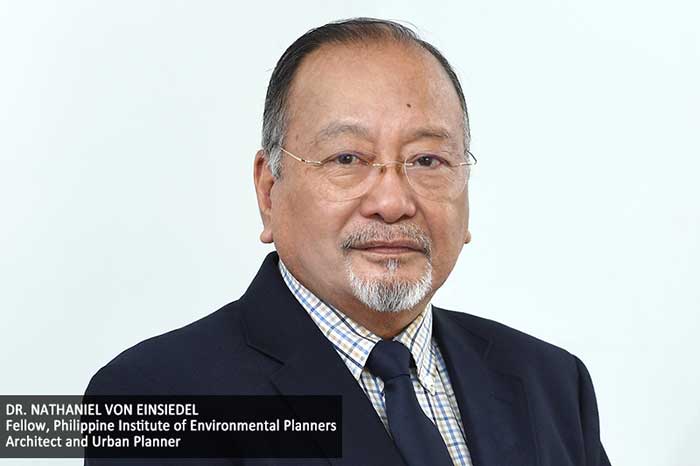
It is high time for the national government and local government units (LGUs) to prioritize more proactive and preventive measures to ensure the resilience of vulnerable groups and economic sectors to the risks brought by disasters and climate change.
Nathaniel von Einsiedel, fellow at the Philippine Institute of Environmental Planners, underscored this during the fourth webinar of the 8th Annual Public Policy Conference (APPC) organized by the Philippine Institute for Development Studies (PIDS) and supported by the Bangko Sentral ng Pilipinas.
According to Einsiedel, LGUs must abandon their reactive approach to managing disasters, which means responding only after a disaster has occurred and “merely repairing or rebuilding what had been damaged”.
“We must invest more in disaster prevention, risk reduction, and mitigation. We find that especially in poorer LGUs, there is a strong reactive post-disaster relief and rescue operation focus and not much on prevention and risk reduction,” he said.
He noted that LGUs’ insufficient resources and political structures prevent them from investing in the right planning tools to be more prepared and truly resilient during disruptive events.
“We do not find enough investments in planning tools among poorer LGUs. They do not even have enough permanent personnel to manage GIS [geographic information system] mapping functions. LGUs are at the forefront in their territories. Sadly, many of them do not have adequate personnel and equipment, making it very difficult to perform their functions,” he said.
Mainstreaming disaster risk reduction and management and climate change adaptation in local development plans is a big part of building resilient people and cities. Governments must enable people to adopt productive and sustainable livelihoods that can survive and thrive even during difficult situations.
Einsiedel stressed that while policies are in place at the national level, various challenges impede their implementation at the LGU level.
“The provincial and regional governments have a responsibility to coordinate and synchronize local development plans. Policies at the national level are important, but they do not effectively trickle down to the LGU level,” he said, adding that “another challenge is intergovernmental collaboration as many environmental problems cross administrative and political boundaries.”
Einsiedel also stressed that eradicating poverty and hunger are key to building resilient Philippine cities. The country’s long-term local economic development plan, he said, must include situation-based recovery measures that can be implemented based on the circumstances and characteristics of a disaster.
“This can be achieved by adopting a development path that is disaster-resilient, risk-sensitive, ecosystem-based, and correlated with poverty eradication. The preparation of a long-term economic development plan should have a built-in post-disaster element, which should be done before a disaster comes,” he noted.
In the same virtual forum, United Nations Development Programme in the Philippines Climate Action Team Leader Floradema Eleazar highlighted the role of analytical work and stakeholder consultation in building inclusive resilience.
She noted that understanding and recognizing the context of risks and their interconnected dimensions could enable capacities for resilience “that leaves no one behind”.
“It is important to have a good understanding of context-specific and area-based situations and develop specific approaches for certain localities,” she said.
“Community-level initiatives, participation, and people-centered approaches are essential in addressing risks and achieving resilience,” she added.
The APPC is the highlight of the yearly Development Policy Research Month celebration led by PIDS every September. This year’s theme is “#CloseTheGap: Accelerate Post-pandemic Recovery through Social Justice”.





















